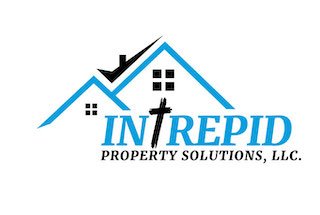If you are reading this post, maybe you’re looking to sell a note or maybe you’re looking for someone who is selling a note with owner financing in SC. Let’s break down the facts so you understand how it works and so you have all the info you need to move forward.
How Notes Work
A note is a real estate investment based on a mortgage. It works like this: a home buyer purchases a house and gets a mortgage. The lender provides the mortgage and anticipates the mortgage to be repaid. That mortgage note has value (the future potential repayments) so if the lender wants to access that value, they can sell that note to someone else. A note investor gives money to the lender and, in exchange, is investing the potential of earning those mortgage repayments still to come.
A note is a great way to diversify your investment portfolio out of strictly real estate while still enjoying the potential for cash flow. Real estate notes offer investors a unique avenue to diversify their investment portfolios beyond traditional real estate ownership while still capitalizing on the potential for steady cash flow. Essentially, a real estate note represents an investment based on a mortgage. When a home buyer purchases a property with a mortgage, the lender provides the funds upfront, expecting the borrower to repay the mortgage over time with interest. This mortgage note holds inherent value, representing the future stream of repayments. Recognizing this value, lenders have the option to sell these notes to interested investors. For the investor, purchasing a real estate note entails providing capital to the lender in exchange for the right to receive future mortgage repayments. This investment strategy allows investors to participate in the real estate market indirectly, without the responsibilities associated with property ownership such as maintenance and management. Moreover, real estate notes offer the potential for consistent cash flow through regular interest payments, providing investors with a predictable income stream. By including real estate notes in their investment portfolios, investors can achieve greater diversification, mitigating risk and enhancing overall portfolio resilience. Additionally, real estate notes offer liquidity and flexibility, allowing investors to tailor their investment strategies to align with their financial goals and risk tolerance. Overall, real estate notes present an attractive opportunity for investors seeking to diversify their portfolios while still enjoying the potential for passive income and long-term wealth accumulation.
What Is Owner Financing
Owner financing is when the owner of an investment carries a mortgage, allowing the buyer to buy from them instead of taking out a loan from a bank. Home sellers, for example, might sell their house through owner financing, accepting regular “mortgage” payments paid to them over time instead of to a bank. Owner financing is helpful especially if you’re buying an investment and don’t have the capital or credit, or don’t want to spend all of your capital at once but would rather spread out the payments. Owner financing, a practice where the seller of a property provides financing to the buyer instead of the buyer securing a traditional bank loan, offers a viable alternative for investors seeking to acquire properties without immediate access to substantial capital or strong creditworthiness. This arrangement allows buyers to purchase an investment directly from the seller, with the seller essentially acting as the lender. In the context of real estate transactions, owner financing enables home sellers to sell their properties by extending credit to the buyer, who then makes regular mortgage payments directly to the seller over an agreed-upon period.
For buyers, owner financing presents several advantages, particularly for those who may face challenges in obtaining financing through conventional channels. This could include individuals with limited capital reserves, insufficient credit history, or those who prefer not to exhaust their available capital all at once. By spreading out the payments over time, owner financing affords buyers greater financial flexibility, making property ownership more accessible and manageable. Additionally, owner financing can streamline the purchasing process, as it often involves less stringent qualification requirements and may bypass some of the complexities associated with traditional mortgage applications. From the seller’s perspective, offering owner financing can expand the pool of potential buyers, attract motivated investors, and potentially expedite the sale process. By acting as the lender, sellers can generate additional income through interest payments and potentially negotiate favorable terms that suit their financial objectives. Furthermore, owner financing allows sellers to retain a vested interest in the property, providing them with recourse in the event of default or non-payment by the buyer. Overall, owner financing serves as a valuable tool for both buyers and sellers in real estate transactions, offering flexibility, accessibility, and mutually beneficial terms that facilitate property acquisitions and sales in diverse market conditions.
Selling A Note With Owner Financing In SC
If you’ve been searching for information about selling a note with owner financing, chances are you’re looking for any of the following possibilities, which may seem confusing.
- You have a note and you’re looking to sell it with owner financing so that the note investor takes the note but pays you a regular income
- You are looking for a note investor or broker who is selling a note with owner financing in SC so that you can pay them a regular amount for your note investment
- Or perhaps you have a note on a property that has seller financing and you’re looking to sell that note
- Or maybe you are looking to buy a note from a seller on a property with owner-financing
As you can see, it’s potentially quite complicated and there are many shades of meaning to the simple phrase: “selling a note with owner financing in SC”.
Fortunately, we’re here to help sort it all out. Just pick up the phone and give us a call at 803-670-8355. We can walk you through the fuller meanings of each one and help figure out which one you’re looking for.

